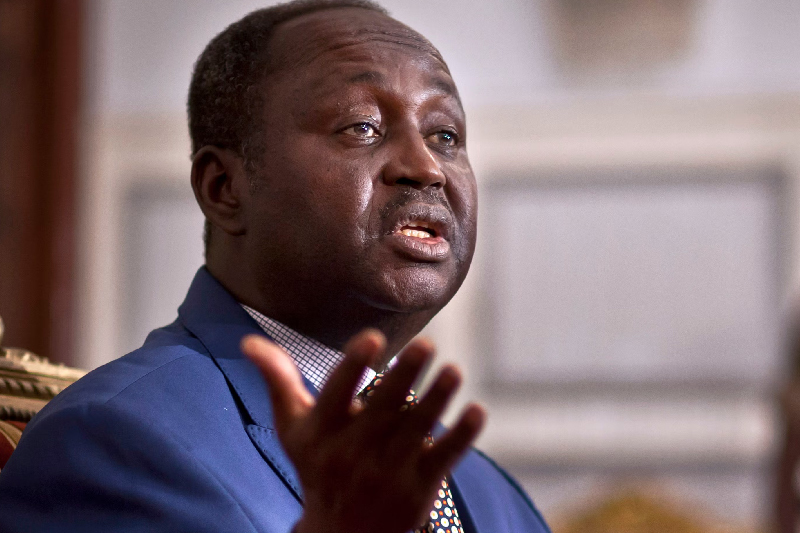

A representative for the Central African Republic's exiled former president François Bozizé said
A representative for the Central African Republic’s exiled former president François Bozizé said on Tuesday, April 30, that a court that has received international support has issued an international arrest warrant against him for human rights crimes that occurred between 2009 and 2013, according to the spokeswoman.
War crimes and other human rights violations perpetrated during the coups and bloodshed that the nation has endured since 2003 are to be tried by the Special Criminal Court in Bangui, the capital.
Guinea Bissau’s president, Umaro Sissoco Embaló, informed the Associated Press that his nation has not received any request from Bangui about the arrest warrant, and that extradition is not allowed by Guinean law, where Bozizé is presently living in exile.
Upon learning of the arrest warrant, Ibrahim Nour—whose father was murdered and subjected to torture at the notorious Bossembélé prison—was overjoyed. Although it may take some time, justice will ultimately prevail over those who carry out the executions.
To that end, Nour expressed her gratitude for the arrest warrants issued against the criminals responsible for her father’s death. “We are waiting for explanations so that we can begin to mourn,” she said. It took a while for the court to start working, even though it was established in 2015.
Human Rights Watch has hailed its establishment as a watershed moment in the fight for victims’ rights after heinous atrocities.
The warrant that was issued on Tuesday conveys a statement about the court’s desire to pursue state misconduct, according to Patryk Labuda, an expert in international criminal law at the Polish Academy of Sciences. “This arrest warrant is certainly one of the most high profile developments in the 5 years the court has operated,” said Labuda.
A decade after Bozizé’s coup d’état in 2003, the mostly Muslim Seleka rebels deposed him. The result was a bloody civil war characterized by sectarian slaughter, the enlistment of children as combatants, and other atrocities committed by the insurgents and their mostly Christian militias. Bozizé was sanctioned by the US and the UN for contributing to the violence.
Thousands have died and more than a million have been displaced as a result of the war, according to the United Nations, which maintains a peacekeeping presence in the nation. This amounts to almost 20% of the population. Although the government and fourteen armed factions struck a peace accord in 2019, hostilities persist.
More than ten years after the start of the civil war, the government of the Central African Republic said earlier this year that an estimated 10,000 youngsters are still fighting with armed groups.
Former President Donald Trump is taking legal action to strike down one of the topics on the forgotten list of…
As U.S. retailers like Walmart and Costco pursue alternatives to Chinese and Bangladeshi suppliers due to rising tariffs, India's garment…
U.S. worker productivity declined for the first time in almost three years in the first quarter of 2025, in a…
According to the Ministry of Health, Labour and Welfare in March 2025, Japan's inflation adjusted real wages fell by 2.1%…
BluSmart Mobility, once viewed as India’s green ride-hailing alternative, ceased operations in April 2025 leaving nearly 10,000 drivers unemployed without…
The India-UK Free Trade Agreement (FTA), recently learnt, has attracted some attention for one of its benefits enabling Indian workers…
This website uses cookies.
Read More